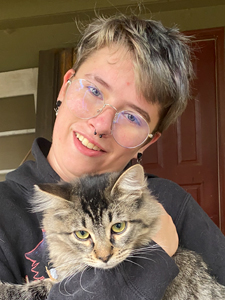Medical bill negotiation is one effective way to reduce medical debt. This page provides tips and resources on how to lower hospital bills through negotiation.
First! Before negotiating that medical bill, make sure you have to pay it! Most hospitals offer discounts or bill forgiveness based on income. This is called “charity care.” A hospital bill for $15,000 could become $150 — or even $0.
Dollar For helps you apply for financial assistance from your hospital. We don’t pay your bills — we get the hospital to forgive them.
Our services are completely free — no strings attached. Learn what to expect when you get help from Dollar For.
Negotiate your bill
If you don’t qualify for financial assistance, you can still lower your hospital bill. You can try to negotiate on your own, or with the help of a negotiation service. Here is one we recommend:
Goodbill negotiates hospital bills for patients — whether you’re insured or uninsured. They’re experts in medical billing processes and patient rights, and have saved patients up to 95% on their hospital bills. It’s risk-free and requires no upfront payment: Goodbill charges a percentage of savings, so it’s completely free unless they save you money.
Note: Goodbill is a for-profit company. We believe their service is a reasonable, risk-free, lower-cost option to help patients crush medical bills.
Contact other organizations that help with medical debt
- Findhelp can help you find free or reduced-cost resources like food, housing, financial assistance, health care, and more.
- Greater National Advocates offers a database of independent patient advocates you can hire to help you navigate your situation. They can help you identify and maximize health insurance coverage and benefits; get insurance approval for a procedure, therapy, or prescribed medication; challenge excessive charges or inflated medical bills; or figure out the type of insurance to get and the best time to sign up. Find a local independent patient advocate now.
- The U.S. government has a lot of programs to help lower-income people pay for healthcare. Check if you qualify for government programs like Medicaid, Medicare, or low-cost health insurance here.
- The Pan Foundation’s Fund Finder tool helps locate payment help for many medications.
- The Leukemia & Lymphoma Society offers financial assistance to blood cancer patients.
- The Patient Advocate Foundation will help patients with diagnosed diseases with a range of services.
Organizations that help with finances
- Money Management International can help you create debt management plans for unsecured debt (credit card, personal loan, medical, charged off debt, etc). They offer advice and educational materials to help you build a positive credit history. Call 866-290-3158 or visit them online today.
- Financial Empowerment Centers offer professional, one-on-one financial counseling as a free city or county service. Financial counselors are highly trained professionals who will work with you to identify goals and create a customized action plan to build your finances. Counselors can work with you on managing your money, creating a budget, paying down debt, increasing savings, establishing and building credit, and opening a safe and affordable bank or credit union account. You can meet with your financial counselor as many times as you’d like; counseling is available at no cost and confidential, regardless of income or immigration status. Find a center near you.
Use our tips to negotiate your medical bill on your own
In 2022, Dollar For built and ran a pilot program to learn everything we could about negotiating hospital bills. While we no longer offer this service, we have built a library of tips we learned along the way. Check out our tips and advice on how you can work to lower your hospital bill.



